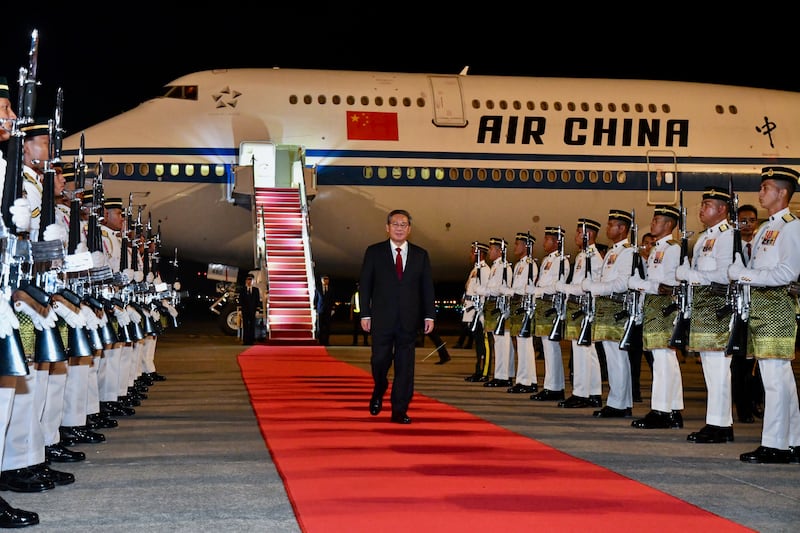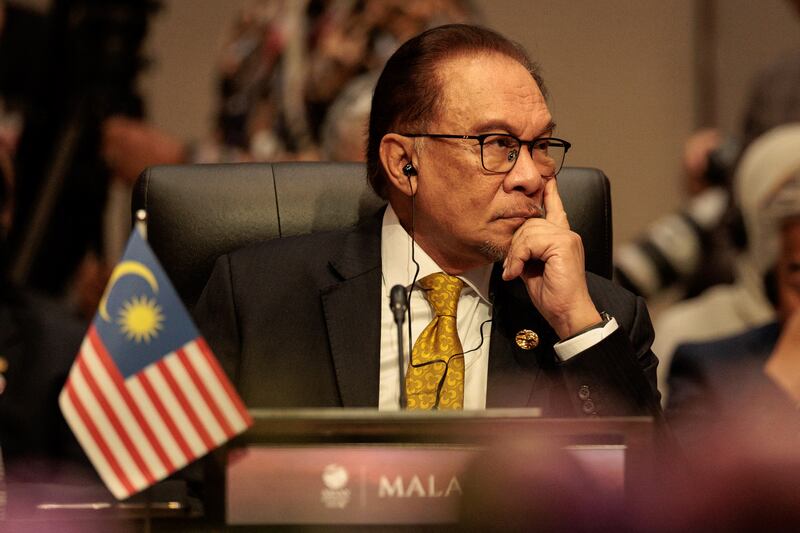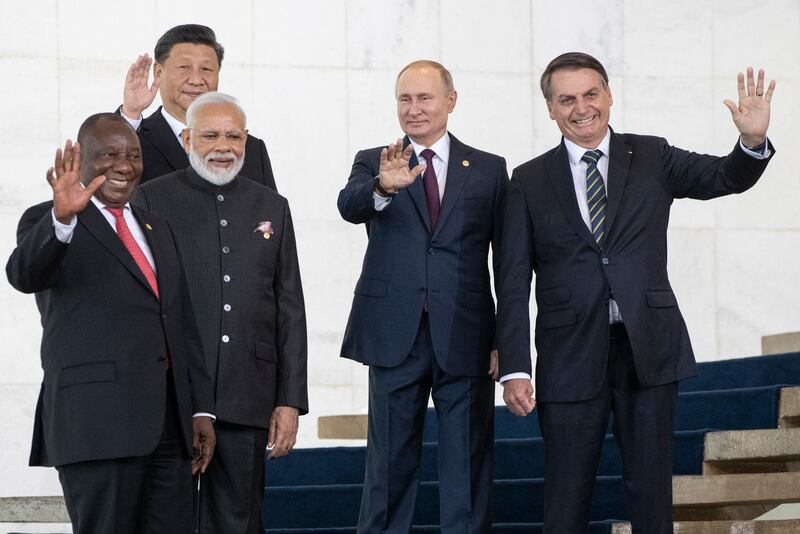Malaysia is angling to join the Beijing and Moscow-backed BRICS bloc to diversify its economic options, senior officials say, while some analysts question how membership in the group, which comprises Brazil, Russia, India, China, and South Africa, benefits smaller members.
Prime Minister Anwar Ibrahim revealed the plan in an interview with Shanghai-based news site Guancha, ahead of Chinese Premier Li Qiang’s three-day visit to Malaysia to mark the 50th anniversary of bilateral ties.
Li, who arrived in Malaysia late Tuesday, was scheduled to attend the groundbreaking for a station along a U.S. $16 billion, China-backed rail project; meet Malaysia’s king; and attend a state dinner.
Li and Anwar were expected to sign a slew of deals and renew a five-year trade and economic cooperation pact, according to official statements and media reports.
"We have made the decision. We are placing the formal procedures soon," Anwar told the Guancha interviewer in a video uploaded Sunday, when asked when Malaysia would join BRICS.
Anwar, who insists that Malaysia is neutral in its economic relationships, said BRICS could provide checks and balances globally.
“We can no longer accept the scenario where the West wants to control the discourse because the fact is they are not colonial powers anymore and independent countries should be free to express themselves,” he said.

A spokesman for the Prime Minister’s Office declined to provide further detail. But Tengku Zafrul Aziz, Malaysia’s minister of Investment, Trade, and Industry, said Tuesday that preparations to join the bloc were going smoothly.
“Malaysia is open to joining BRICS because it offers economic benefits to the country. Currently, progress is moving ahead smoothly, and we await further discussions as stated by Prime Minister Anwar Ibrahim,” he told reporters after an event outside Kuala Lumpur.
A foot in the door
Some analysts believe that BRICS offers its members a platform to counter a U.S. and Western-dominated world order, and an alternative to Washington-led political and economic institutions.
Founded in 2006, BRICS holds annual summits, with one-year chairmanships rotating among member countries. Russia is set to host the 2024 BRICS summit in the southwestern city of Kazan this October.
In January 2024, Egypt, Ethiopia, Iran, and the United Arab Emirates formally became part of the group. According to news reports, more than 30 countries have expressed interest in joining BRICS, with Malaysia and Thailand being the first Southeast Asian nations to seek entry.
Malaysia said it remained friendly with major superpowers amid Sino-U.S. tensions, and was aiming to become a neutral economic powerhouse, including by becoming a global hub for the manufacturing of semiconductors. It has been the target of recent investments from Silicon Valley firms expanding in Southeast Asia.

Commenting on Malaysia’s potential BRICS entry, analyst Chong Ja Ian said that while the bloc provides alternatives for financing and supply chains, its success remains uncertain.
“The actual effect of the BRICS for non-major power members is not especially evident at this time. The support it is supposed to offer during crises has also not been tested yet,” Chong told BenarNews.
“Malaysia joining BRICS will not make it a major power nor will it make any other actor more or less of a major power,” said Chong, a nonresident scholar at Carnegie China, an East Asia-based research Center on contemporary China for the Carnegie Endowment for International Peace.
Shahriman Lockman, special project director of Institute of Strategic and International Studies Malaysia, said the BRICS bloc “lacks coherence, which is unsurprising when some of the BRICS countries see each other as rivals.
“But they’re talking about issues that are important to us – things like development funding and currency arrangements. So, it would be good to have our foot in the door and see what happens with it,” he told BenarNews.

Foreign policy and security expert Julia Roknifard, from the University of Nottingham Malaysia, said the announcement was in line with Malaysia’s efforts to maneuver between great powers.
“BRICS has emerged as an economic bloc and does not necessarily mean that participating countries must align themselves politically or ideologically with major participating powers such as India, China or Russia.
"However, some will not be able to help themselves and say that Malaysia's participation in BRICS is in fact a sign of a pro-Beijing tilt," she told BenarNews.
"It remains to be seen if that will indeed be the case, but Malaysia is already the country in ASEAN that has the highest amount of trade with China compared to other ASEAN states."
China has been Malaysia’s largest trading partner since 2009, with the total value of bilateral trade reaching RM450.8 billion (U.S. $98.9 billion) in 2023, Malaysia’s foreign ministry said in a statement Tuesday.
